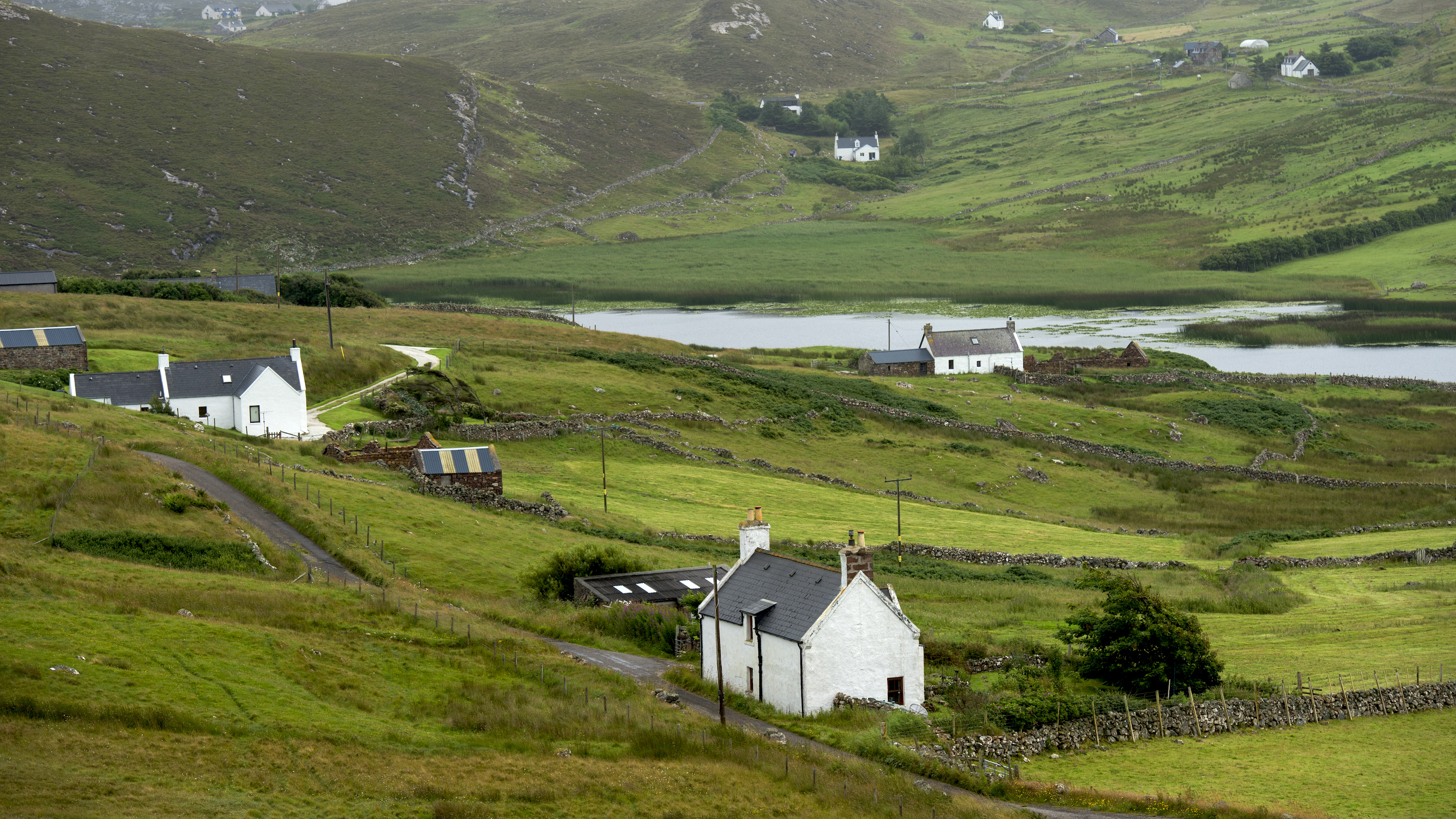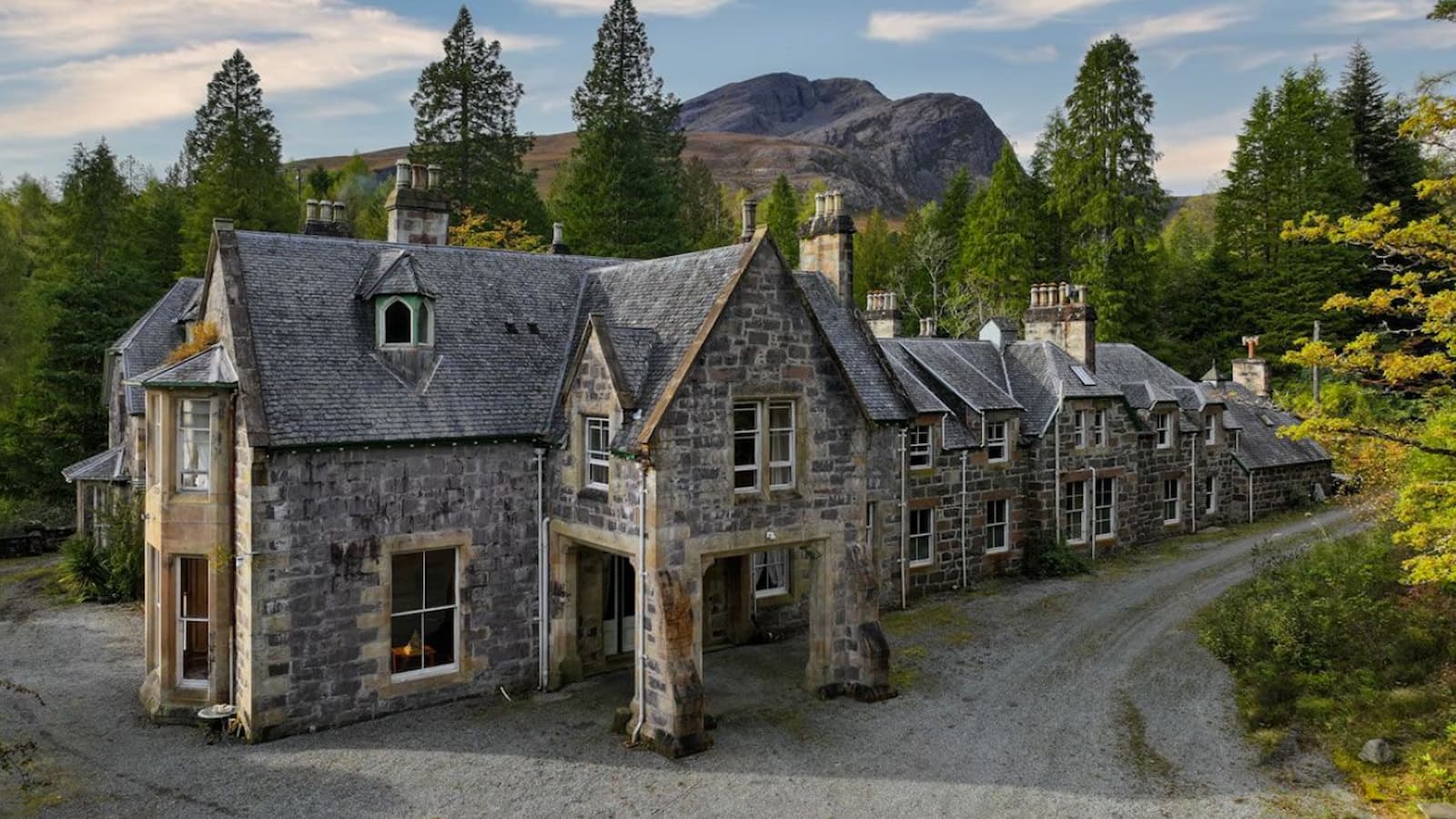Thinking of buying a house with a private water supply? What you need to know
Having a private water supply might sound like it brings savings, but there are complications you should know about

Buying a house with a private water supply could seem to be a shrewd move – especially if you’re currently in a home with a water meter. But there’s plenty you should know before committing to a home like this to ensure it’s the right buy.
Encountering private water supplies when you’re buying a house happens relatively rarely. In England and Wales just 1 per cent of homes have them; they provide drinking water to 3 per cent of Scotland’s population; and in Northern Ireland less than 1 per cent of water comes from private supplies, says the Chartered Institution of Water and Environmental Management.
However, mostly if you’re searching in a rural, remote location, you might view homes that aren’t on mains water, so it’s vital to know the issues private water brings and we’ve put together this guide to help.
What types of private water supply are there?

Subscribe to Plotfinder.net to access over 15,000 building plots and properties that could become your next project
Private water supplies can come from a well, borehole, spring, stream, river or lake/loch or other sources such as reservoirs, springs and canals. The supply might be for a single home, but it could be shared between a number of properties.
Taking water is called abstraction and, for England, “the basic rule is all abstraction requires an abstraction licence – unless the amount taken is less 20 cubic metres a day,” says Tristan Ward, partner, Broadfield. You can find more details via the Environment Agency as well as links to the rules for other UK nations.
“Anyone considering using a private water supply must ensure they have the legal authority to take the water they will need,” he adds. “If there is an abstraction licence, buyers should ensure it remains valid, review the conditions and ensure the licence is transferred to them at completion.”
Be mindful that as well as private water supplies there are private suppliers. “Some rural properties take water from private suppliers – often a historic estate,” Tristan continues. “As well as asking questions about quality and quantity of water, buyers should check there are enforceable rights to use the water supply system, and appropriate obligations on the supplier to maintain the system. Many of these systems are very old and pipes leak: cost of maintenance – even when shared between all users – can be very significant. Sometimes the user will be obliged to pay for water in line with the costs of water of the statutory authority – where ancient pipes leak this can turn out to be very expensive.
“It is common for deeds dealing with the rights to take water from an estate supply system to provide that the supplier does not guarantee either the quality or the sufficiency of the supply,” he continues. “However, the Water Industry Act 1991 gives the local authority power to require the supplier to ensure a wholesome and sufficient supply of water to a domestic property. It is worth buyers checking whether the local authority is aware of the system. If it is not, the supplier might in the future be required to install costly equipment guarding against the risk of contamination – the cost of which may be passed on to users.”
For a private water supply whether the source and pipes are on the land you are buying or someone else’s is crucial for a buyer. If it’s the latter, you will need to ensure you are legally able to gain access for maintenance, inspection and repair. This should also be discussed with your conveyancer.

Tristan Ward is a partner in the residential property team at the international law firm Broadfield. He specialises in rural and agricultural property, farming his family’s farming business.
What maintenance does a private water supply require?
The water from a private water supply has to be treated so that it’s safe. Disinfection treatment kills harmful bacteria, and it may need filters to take dirt and solids from the water. It can also need pH correction treatment.
A private water supply other than that for a single house may need regular risk assessment and testing by the local authority. Exactly which supplies need this depends on which country of the UK the house is located in. However, whether or not a supply is subject to risk assessment and testing, regular testing is recommended to ensure it remains safe to drink.
If you were to buy a home with private water, you should also be prepared for the maintenance of water treatments, which can involve tasks such as cleaning UV filters and replacing bulbs, and replacing filters.
You will also need to ensure the water tank is protected from contamination and that pipes are protected.

Can you get a mortgage on a home with a private water supply?
Getting a mortgage on a home with a private water supply can be less straightforward than for one with mains water.
“It should be possible to get a mortgage on a home with a private water supply as long as certain conditions are met but it may take longer as such applications can be considered on a case-by-case basis,” says Mark Harris, chief executive of mortgage broker SPF Private Clients. “Much will come down to the surveyor and solicitor comments when the buyer has their mortgage valuation and survey done.
“As long as the valuer and solicitor are happy, lenders appear to be OK with this, although a smaller pool will be prepared to lend than if the water was mains supplied. The solicitor must confirm that the water quality is fine, regularly tested and is comfortable with maintenance of the supply – who is responsible for what, the cost and term of the agreement. If not, the lender may place a retention until this is confirmed to its satisfaction.
“It is very important to have a good solicitor who can handle the enquiries and ideally has some experience of dealing with such a situation before,” he adds.

Mark is chief executive of SPF Private Clients, an award-winning financial services intermediary, and was part of the launch team of the company as Savills Private Finance in May 1997. Originally launching as the financial services arm of Savills, SPF has rapidly grown into one of the market leaders in UK financial services. SPF became part of the Howden Group of companies in 2022.
What should you ask the seller of a home with a private water supply?
It’s a good idea to question the seller of a home with a private water supply or the estate agent when you’re viewing so you have a better idea of its implications were you to make an offer on the property.
Find out if the supply has had local authority risk assessment (see above), when this took place, whether improvement works were required and whether these have been completed, if so. It’s also worth finding out about the results of testing by the local authority and whether these showed any water quality problem. Note that the Drinking Water Inspectorate recommends that a potential buyer should request a risk assessment and testing by the local authority.
Ask, too, about any water treatment at the house and for evidence the system was fitted by a competent installer. It’s a good idea to ask for maintenance records. You should also find out if there have been problems with water quality or with the quantity of the water.
If it’s a shared supply, find out how any necessary maintenance and repairs are arranged and how costs are divided.
A water borehole usually needs a pump so if the water comes from one of these, find out about arrangements for any power cuts. There may be an accumulator that stores pressurised water.
Do you need an additional survey of a home with a private water supply?
If you decide to buy a home with a private water supply make sure you are well informed. “It would make sense to commission a specialist additional survey if you are buying a property with a private water supply so you are aware of all the facts,” says Michael Zucker, surveyor at Jeremy Leaf & Co.

Michael Zucker is a surveyor at estate agency Jeremy Leaf & Co. He graduated in architecture before qualifying as a chartered surveyor. He joined Jeremy Leaf & Co in 1986, subsequently becoming a fellow of the RICS. Michael specialises in valuations for various purposes, in particular for leasehold enfranchisement.
Depending on where you live in the UK, you might avoid receiving a bill if you buy a home with a private water supply. However, even when this is the case, you may well be responsible for other tasks and costs and it’s vital to be aware of these before committing to the home.

Get the Homebuilding & Renovating Newsletter
Bring your dream home to life with expert advice, how to guides and design inspiration. Sign up for our newsletter and get two free tickets to a Homebuilding & Renovating Show near you.
Sarah is a freelance journalist and editor writing for websites, national newspapers, and magazines. She’s spent most of her journalistic career specialising in homes.
She loves testing the latest home appliances and products, and investigating the benefits, costs and practicalities of home improvement. She is an experienced renovator and is currently remodelling the ground floor of her new home.
She was Executive Editor of Ideal Home and has worked for Your Home and Homes & Ideas. Her work has published by numerous titles, including The Guardian, channel4.com, Houzz, Grand Designs, Homes & Gardens, House Beautiful, Homes & Antiques, Real Homes, The English Home, Period Living, Beautiful Kitchens, Good Homes and Country Homes & Interiors.
